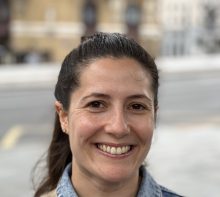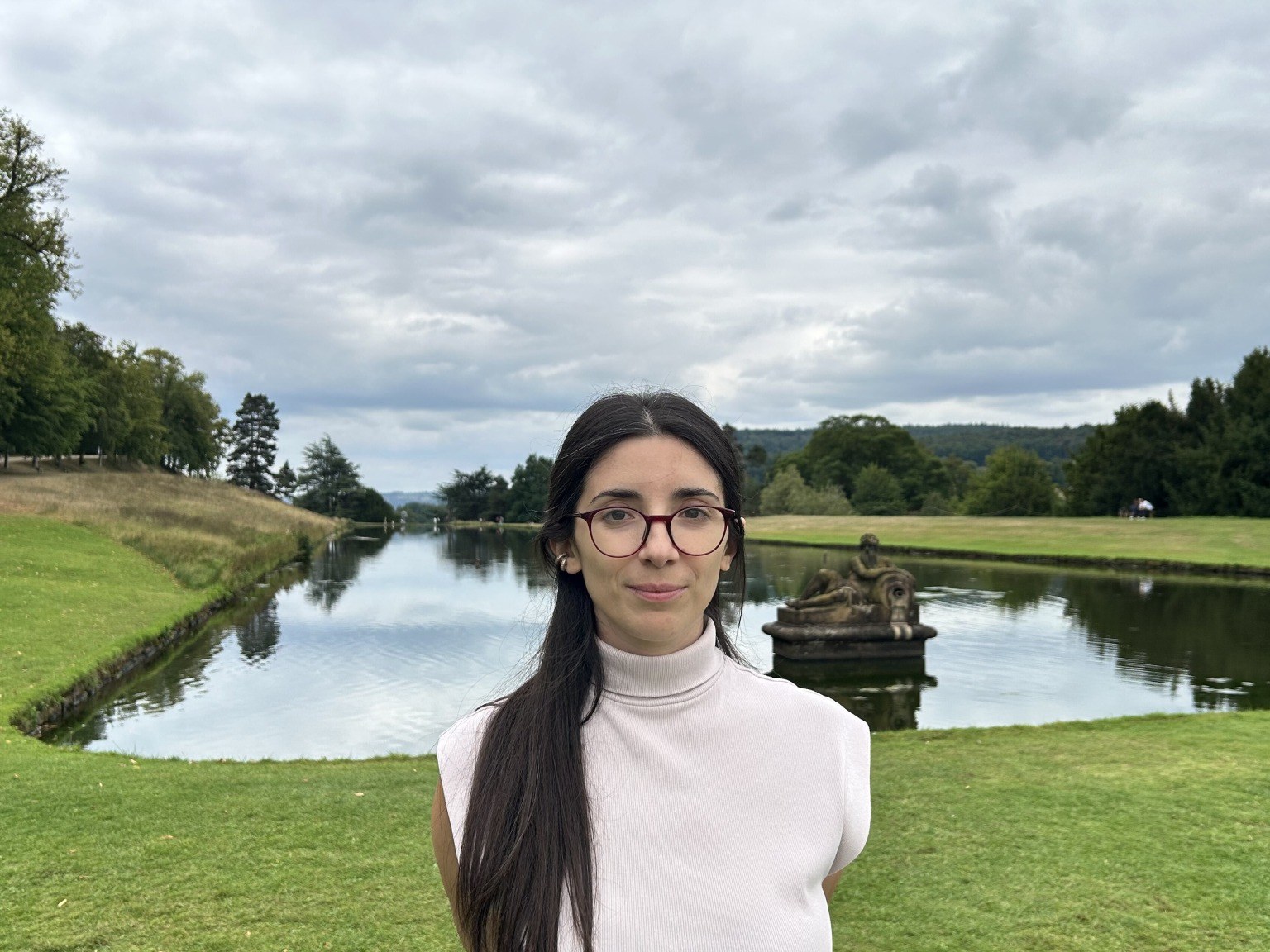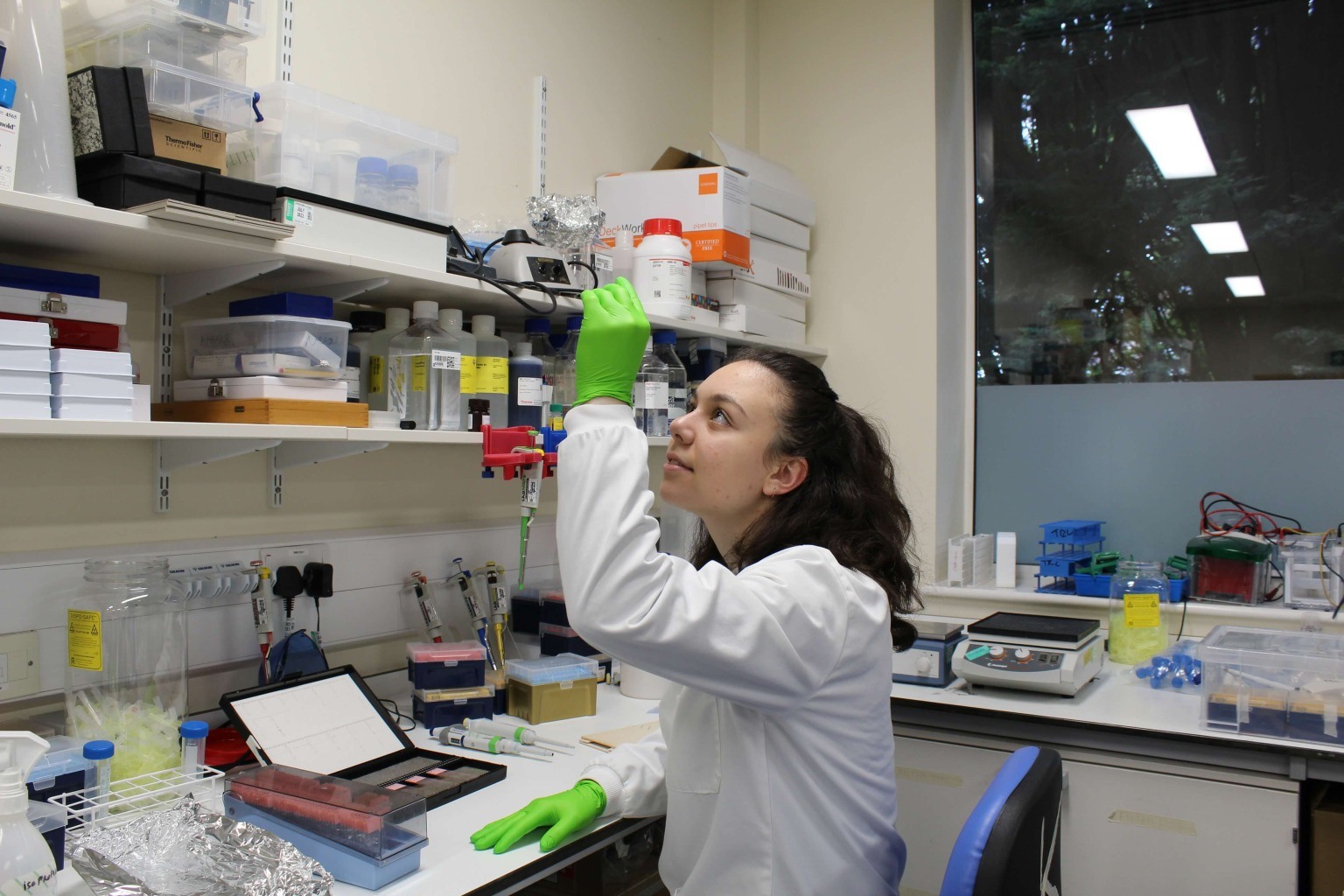
Exploring the invisible: Dr. Ariadni Boziki simulates the molecular world
Chrysovalantou Kalaitzidou
Magazine / Interviews , Technology
Katerina holds a PhD in Electrical and Electronic Engineering from Imperial College London, an MSc in Internet and Wireless Computing from the University of York, and a BSc in Computer Science from Piraeus University, Greece. Her research interests include Human-Computer Interaction (HCI), Game Design & Development, Interface Design, Information Visualisation, Health Informatics, Smart Cities and Internet of Things (IoT).
Dr Bourazeri is interested in designing, implementing and evaluating technologies that address everyday problems with a direct impact on people’s lives; examples include energy efficiency and sustainability, people’s empowerment and inclusivity in societies, and independent living at home for people with disabilities or chronic conditions. She talked to Greek Women in STEM about her view’s and career path up to today.
Do you believe that your environment influenced you in choosing your profession?
My family influenced greatly my decision in becoming a computer scientist. Since I was a little girl, my parents always encouraged me to have an open mind, to think clearly and in a rational way, and to always try looking for facts. Growing up with self-discipline contributed significantly to successfully complete my studies, especially my PhD which requires a lot of focus and hard work.
Describe a typical day at work for us.
A typical day at work involves different activities and tasks. During my teaching term, most of my time is devoted to teaching, e.g., preparing the teaching material, delivering lectures and answering students’ questions. As an academic, I supervise many bachelor, master and PhD students and the main activity is to support them and help them solve any problems they might face during their studies. And then of course, research. Trying to understand what the current needs in my field are and coming up with the best solution. Creating impact and having a positive effect on people’s lives is of outmost importance to me.
Tell us about your research and what you’ve been up to lately.
My research mainly focuses on serious games. Serious games are games that promote learning and behaviour change besides entertainment. Over the years, I have developed various games for different health conditions, people’s empowerment and inclusivity in communities, and energy efficiency. An example of such games is the DailyD game that was developed to empower young people with Down’s syndrome to be independent and have a more active role in our society. This game includes different tasks such as how to tidy up the bedroom, how to follow a simple recipe and cook a meal, how to safely cross the road. My current research/vision focuses on the development of a virtual world; this world will provide people, who suffer from mental health issues, with a psychologically safe environment.
My biggest reward is to receive comments from students such as the following: “Lecturer was excellent, very approachable, great interaction with students, always available for help.”
Tell us something you are proud of.
I am very proud of my research, as my work has empowered many people with chronic conditions such as Alzheimer’s and Parkinson’s disease to be independent at home and in charge of their self-care without needing routine interventions from healthcare professionals. Moreover, the different serious games I have developed, have increased the public awareness and social impact regarding security, culture, climate and energy. These serious games have improved people’s problem-solving skills, coordination and social skills. Apart from my research, I am very proud of my role as an educator. My goal every year is to develop an inclusive classroom where all students feel safe and empowered to express their views and ask questions without feeling ashamed or shy. My biggest reward is to receive comments from students such as the following: “lecturer was excellent, very approachable, great interaction with students, always available for help.”
Which female scientist is your role model?
I don’t have a specific female scientist as a role model since I am always trying to get inspiration from all the women and men who thrive in their respective fields. Of course, as a computer scientist, I really admire Ada Lovelace for her contribution in the field, but a good role model can be anyone who can be exemplar to others.
Find Dr Katerina Bourazeri on LinkedIn or her website.


Chrysovalantou Kalaitzidou

Thaleia-Dimitra Doudali

Danai Korre
